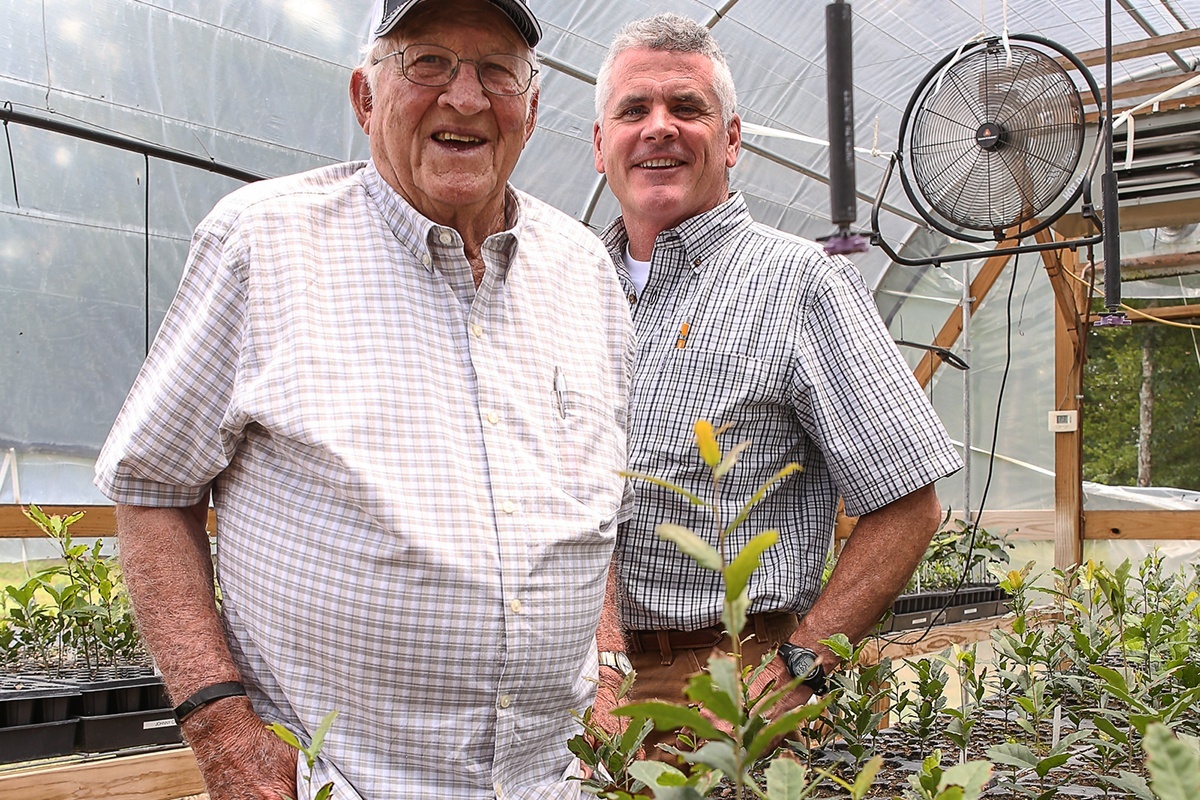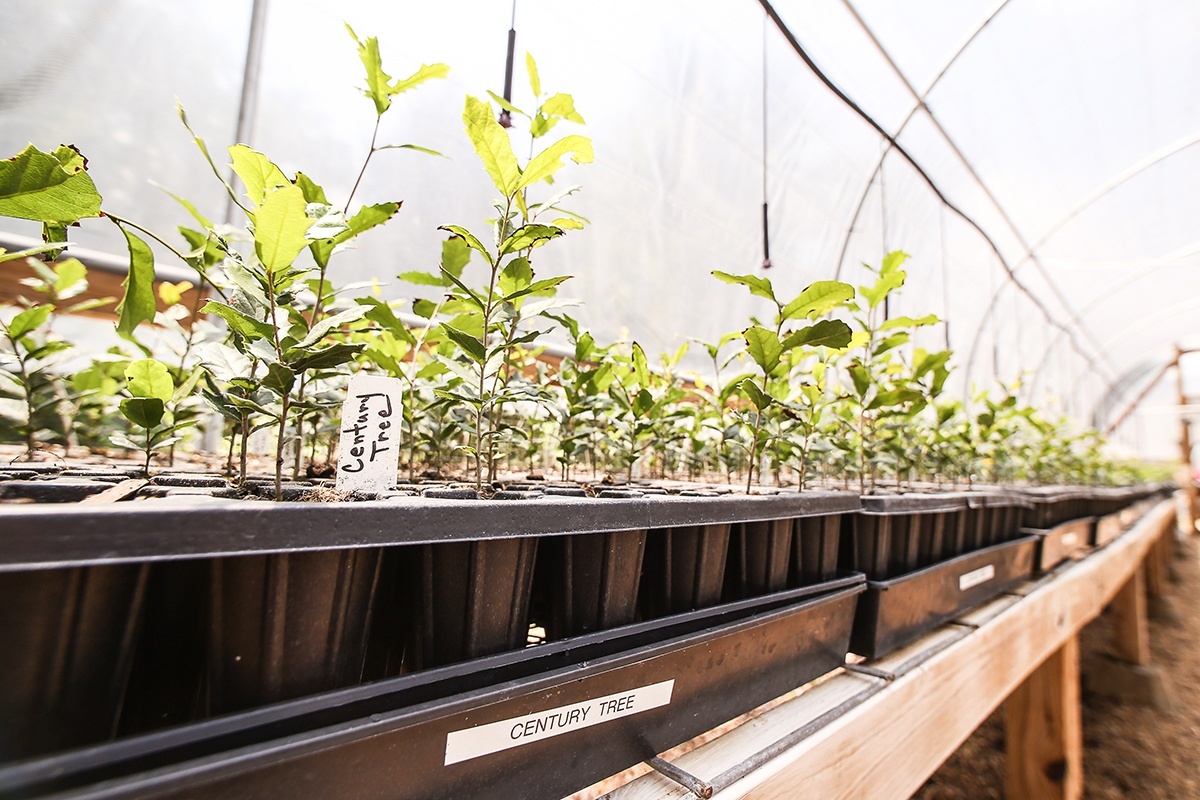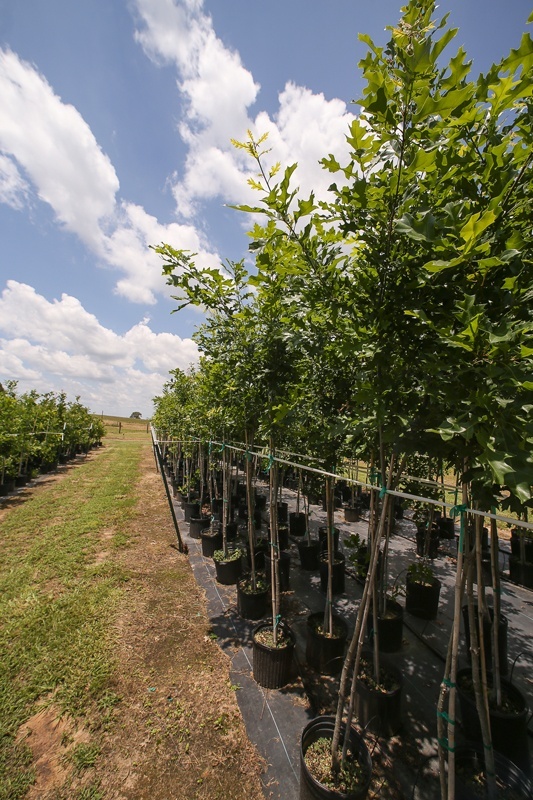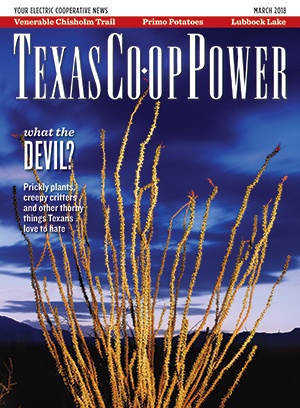March is the month to remember, and celebrate, Texas independence. We can revisit the historic accounts, reread William B. Travis’ letter from the Alamo, and imagine the hardship and drama of that time. Of course, there are no living human witnesses to the 1836 events to tell the story, but ancient trees stand in silent testimony that still inspires reverence.
One legendary tree that stood as a witness to the events of the war for independence is La Bahia Pecan, overlooking the historic ferry crossing near the confluence of the Navasota and Brazos rivers. On its Famous Trees of Texas website, the Texas A&M Forest Service says La Bahia Pecan sprouted to life in the early 1800s after a trader dropped a pecan he had brought from Mexico. That pecan grew into a young tree by the time a convention of Texans signed their 1836 Declaration of Independence from Mexico in the nearby community of Washington.
La Bahia Pecan still stands as sentinel over the long-gone river crossing and, with the help of Texas Co-op Power magazine, recently inspired the idea for a business. Bourke Harvey and Chuck Cade’s business, Legendary Trees, started with a short article called Grow Your Own Tall Tale, about a project selling seedlings from La Bahia Pecan to raise funds for Washington-on-the-Brazos State Historic Site. La Bahia seedlings are still available from the park’s gift shop.
“I bought two of those trees,” Harvey says, “and was intrigued with the idea.” The notion of commemorating special events guided Harvey and Cade to start their business with a nursery about 20 miles south of Athens, in the Trinity Valley Electric Cooperative service area. The business grows and sells saplings descended from some of Texas’ historic trees. “All our trees have documented history behind them,” Harvey says.
The two decided they could base a business on the notion that a long-lasting observance of a historic event—or any personal landmark—could be planting a tree. Not just any tree, but one descended from a historic—or legendary—tree.
One of the several historic oaks they propagate is the Fleming Oak that spreads its limbs over the Comanche County square. The Fleming Oak sheltered early nonnative settlers as far back as the mid-1850s, and the tree’s defenders have fought off and subdued multiple attempts to cut it down and pave it over.
“Chuck and I started doing some research on what it takes to grow a tree like that,” Harvey explains, “and it takes about a year to get one of these saplings to 3 feet high.”
The business is almost a family affair because, as a teenager, Harvey spent summers working with Cade. “We did all kinds of work, baling hay and such like that,” Cade says. Their longtime friendship is evident in the personal way they share stories about starting Legendary Trees. On a quick tour of the greenhouse, Cade points out which of the liner trays holds the new sprouts from individual trees. He estimates that 35 percent of the acorns they plant will sprout. Pecans, he points out, require a five-day soaking to crack and sprout.
Almost all the trees available from Legendary Trees are oaks, but pecan lovers can now select a descendant of the Goodnight-Loving Pecan, located in Palo Pinto County, under which cattlemen Charles Goodnight and Oliver Loving first shook hands on their now-legendary partnership.
Bill Carson, a Fort Worth man now retired from the air-conditioning business, owns a ranch between De Leon and Rising Star, where he planted a sapling that Legendary Trees sprouted from the Traders Oak of Fort Worth. “I’m a Fort Worth guy, and I really appreciated the gift of this tree,” he says. “I might not live to see it grow to full height, but that’s not what matters.”
There’s a saying attributed to Canadian farmer Nelson Henderson that goes, “The true meaning of life is to plant trees under whose shade you do not expect to sit.” That could apply to an understanding of Texas history—or legend—as well.
Charles Lohrmann is the Texas Co-op Power editor.




